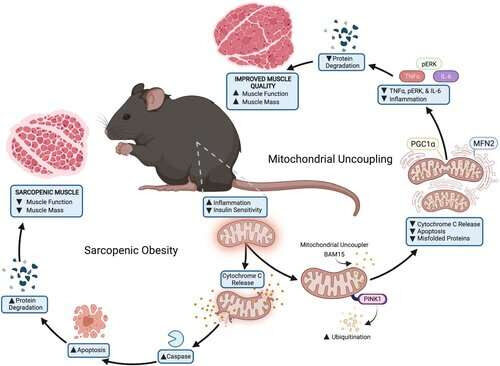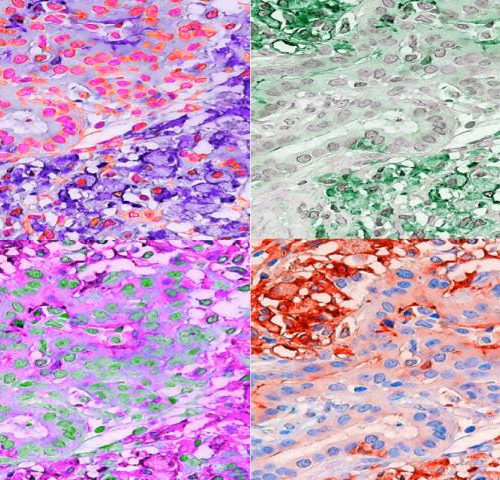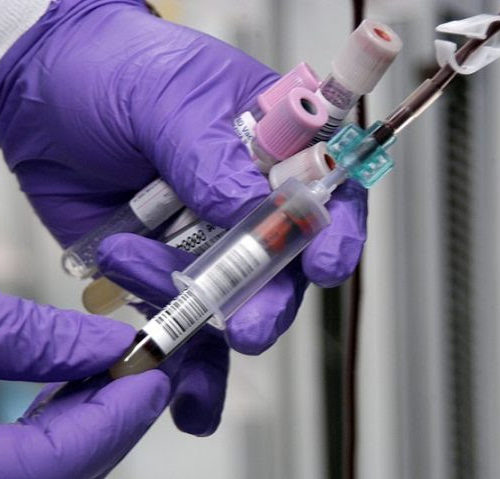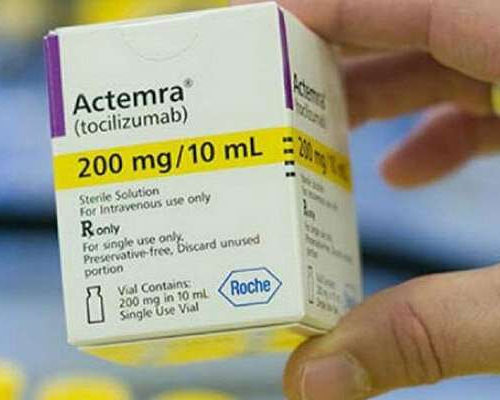by H. Lee Moffitt Cancer Center & Research Institute To perform a spatial ecological analysis the team developed a new tool called VALIS that aligns histology slides, making it possible to construct highly multiplexed images from tissues stained via immunohistochemistry (IHC) and/or immunofluorescence. This image shows one of the 11-plex IHC used in the spatial...
Tag: <span>immunosuppression</span>
Most adults with lupus or common types of arthritis have similar risks of getting admitted to hospital as other COVID-19 patients
Most adults with systemic lupus erythematosus (SLE) are not at increased risk of hospitalization from COVID-19 due to medications used to dampen their altered immune system, the cause of their disease. Nor are most people with more common types of arthritis, such as rheumatoid, psoriatic and spondyloarthritis, at greater risk of hospitalization from COVID-19, a...
Immunotherapy-resistant cancers eliminated in mouse study
Antibody that blocks TREM2 protein frees immune cells to reject cancer WASHINGTON UNIVERSITY SCHOOL OF MEDICINE IMMUNE CELLS INFILTRATE A HUMAN TUMOR IN THE FOUR COLORIZED IMAGES ABOVE. IN A MOUSE STUDY, RESEARCHERS AT WASHINGTON UNIVERSITY SCHOOL OF MEDICINE IN ST. LOUIS HAVE FOUND THAT AN… view more CREDIT: WILLIAM VERMI/MARTINA MOLGORA Immunotherapy has revolutionized...
The Aging Gut Microbiome Produces More Trimethylamine, Harming Arterial Function
In recent years academic interest has grown in the study of the gut microbiome. Researchers are making inroads into understanding the considerable influence of these microbial populations over the progression of health and aging. The gut microbiome may be as influential as physical activity in these matters. The balance of microbial populations shifts unfavorably over...
Silencing of an ALS gene safely delivered to patients in new study
by Jim Fessenden, University of Massachusetts Medical School UMass Medical School and Massachusetts General Hospital are the first to safely treat two research participants with a synthetic microRNA, delivered into the spinal fluid, designed to silence a human disease-causing gene. Details of the treatment, which targeted the mutant SOD1 gene that causes ALS, appear in...
‘Harmless’ bacteria turning deadly
James Cook University researchers are warning microorganisms previously thought to be benign are becoming more dangerous worldwide – and especially in the tropics. Professor John Miles from JCU’s Australian Institute of Tropical Health and Medicine said diseases caused by non-tuberculous mycobacteria (NTM) have been steadily increasing globally. “NTMs are the lesser-known cousins of tuberculosis. They...
Novel compound shows promise for ANCA-associated vasculitis
Reviewed by Emily Henderson, B.Sc. ANCA-associated vasculitis (AAV) is a systemic disease involving the formation of special autoantibodies (so-called anti-neutrophil cytoplasmic antibodies/ANCA) and vascular inflammation. There are several diseases associated with involvement of the kidneys, lungs, upper respiratory tract, heart, skin and the nervous system; potentially life-threatening courses of disease are also possible. Immunosuppressive therapy...
EULAR: Hydroxychloroquine use in lupus patients ‘does not seem to prevent COVID-19’
by European League Against Rheumatism (EULAR) The current outbreak of COVID-19 represents a source of concern for the management of systemic lupus erythematous, SLE, patients. These patients have an increased risk of severe infections due to their underlying disease, the use of immunosuppressive drugs, as well as the potential presence of organ damage associated with...
Arthritis drug presents promise as treatment for COVID-19 pneumonia
by University of California – San Diego UC San Diego Health has launched a Phase III clinical trial, part of a global effort, to assess whether a medication used to treat rheumatoid arthritis and other inflammatory disorders might also have therapeutic value for COVID-19 patients who have developed or at high risk of developing serious...
Cell-free DNA detects pathogens and quantifies damage
This news or article is intended for readers with certain scientific or professional knowledge in the field. A common problem in diagnosing infectious disease is that the presence of a potential pathogen in the body does not necessarily mean the patient is sick. This can be particularly challenging for the treatment of organ transplant recipients,...
- 1
- 2







